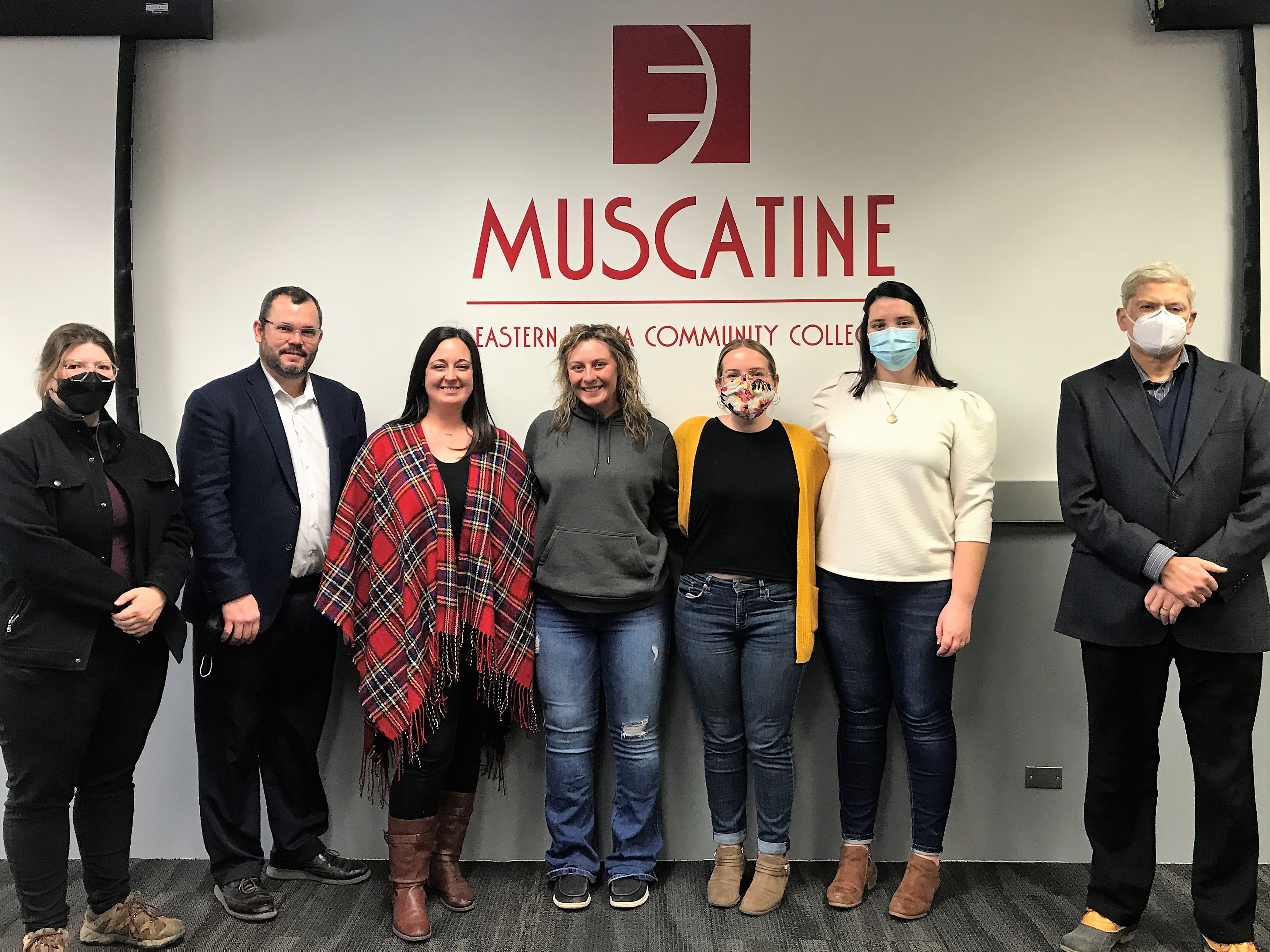Muscatine Community College Sustainability and Environmental Responsibility (SER) Initiative
Second-year Master of Public Affairs (MPA) students collaborated with administrators and students at Muscatine Community College in the development of policies and best practices for reducing greenhouse gas emissions and implementing a Sustainability and Environmental Responsibility (SER) Initiative.
Muscatine Community College (MCC) is located along the Mississippi River and is one of three institutions in the Eastern Iowa Community College District. In addition to MCC’s main campus in Muscatine, seven additional Centers serve nearly 1,800 students. Recognizing the importance of implementing sustainable practices into campus operations, MCC administrators requested assistance in establishing a framework of best practices and policies to effectively reduce greenhouse gas emissions and redesign the current waste management system.
Over the past decade, colleges and universities have sought to integrate sustainability-minded policies and principles into campus operations. Common examples include reducing greenhouse gas emissions through evaluating an institution’s carbon footprint and implementing targeted policies to become a zero-waste campus. Carbon footprints and zero-waste programs, while related, address different aspects of human impacts on the environment.
A carbon footprint is the sum of all greenhouse gas emissions generated by an institution. Contributing factors to the calculation include food consumption, transportation practices, energy usage, and waste production. While a carbon footprint assessment can inform zero-waste policy, an institution still must evaluate the current waste management system and adopt changes where necessary.
For this project, the MPA team worked closely with MCC administrators and the Phi Theta Kappa (PTK) student organization to design policies for reducing greenhouse gas emissions and waste generation. PTK will have a lead role in the implementation of recommendations.
This collaboration had several components: a) assist PTK with their Honors-in-Action project, b) assess the culture of sustainability at MCC, and c) develop a framework for MCC to create a unique and customized Sustainability and Environmental Responsibility Plan (SER Plan). The MPA Project Team created, administered, and analyzed surveys regarding behaviors, beliefs, and perceptions about environmental sustainability. Members of PTK and the MPA Project Team completed a waste audit to collect data on the efficiency of the waste management methods utilized at MCC. The MPA project team completed research of peer institutions to determine methods of developing an SER Plan. With these findings as well as focus group input, the MPA Project Team created a customized framework for MCC to establish an SER committee, create an SER plan, and propose several actions such as improving the waste management system, increasing sustainability education in the curriculum, and encouraging low carbon transportation that will help MCC reach their sustainability goals.
